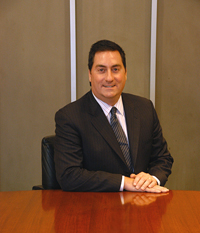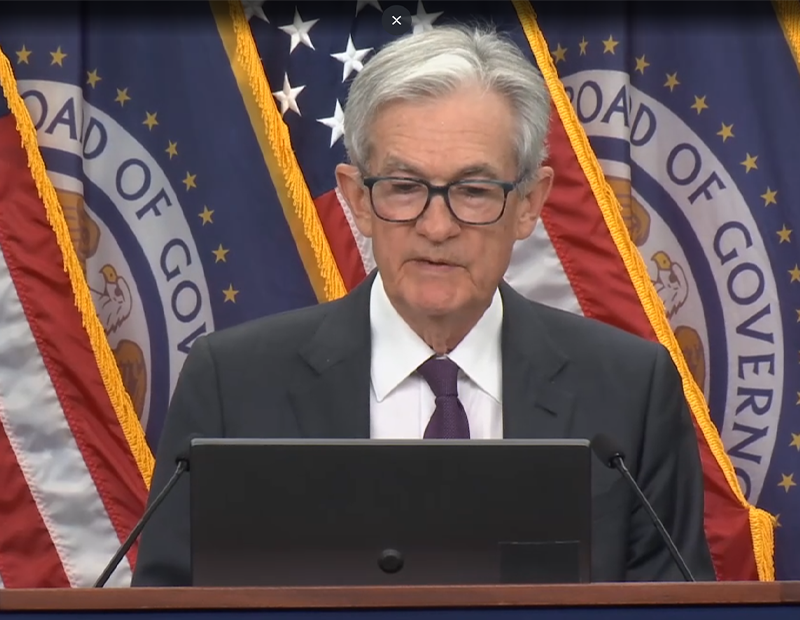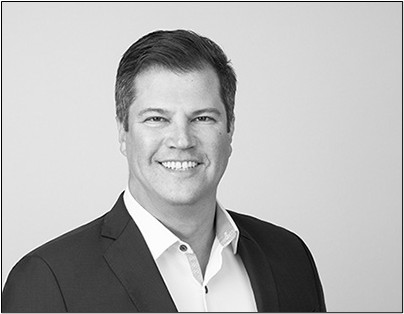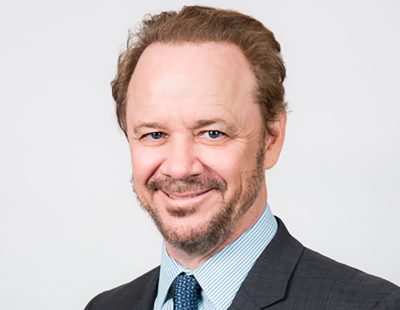Border Crossing: Mark Rose Leads Canada’s Avison Young onto the Global Stage
Having led the 2008 unification of Canadian service firm Avison Young’s three provincial affiliates, CEO Mark Rose has been orchestrating its foray into the United States. Since 2009, Avison Young has opened 15 U.S. offices, including six during the first half of this year.
 By Paul Rosta
By Paul Rosta
This year, the real estate services firm Avison Young moved to new digs at PwC Tower, a recently completed 650,000-square-foot trophy building at the Southcore Financial Centre in Toronto. Owned by British Columbia Investment Management Corp. and developed by GWL Realty Advisors, the 650,000-square-foot trophy tower qualifies for LEED Gold certification. “We wanted to be one of the first, if not the first, of the global companies to be in a LEED-certified building,” explained Mark Rose, Avison Young’s chairman & CEO.
Taking space in a state-of-the-art sustainable property may be a small, if worthy, gesture in the great scheme of things. Yet Rose’s comment hints at his larger mission. At a time of economic uncertainty and continued mergers in the service sector, Rose is attempting to steal a march on the competition and make his company a serious contender in the crowded, hyper-competitive U.S. service field. In the pursuit of this mission, he is constantly on the move. On one recent summer day, he flew from Toronto to New York City for a mid-afternoon meeting, then boarded a flight for Chicago, where he was scheduled to attend a working dinner. Rose is hardly unfamiliar with life at 35,000 feet; since joining Avison Young in 2008, he has divided his time between Toronto and Chicago, which he has called home for a decade.
In its quest to muscle in on the U.S. market, Avison Young is going head-to-head with more established firms in a variety of specialties: leasing, investment sales, property and asset management, capital markets, and other advisory and consulting specialties. “He had a vision of where he was going to take that company,” said Philip Gillin, senior vice president & head of Canadian real estate for SunLife Financial Inc., a longtime Avison Young client. “I think he’s been very successful in doing that.”
On Rose’s watch, Avison Young has expanded from an exclusively Canadian firm with 11 offices and slightly fewer than 500 professionals to 32 offices in the United States and Canada and more than 950 people. Since establishing its first office in the United States three years ago, Avison has opened 15 offices in gateway and strong secondary markets, six of them in the first half of 2012 alone. Additional new locations are waiting in the wings. To expand his team, Rose often draws on the ties he established during a dozen years as an executive at Jones Lang LaSalle Inc. and three years as CEO of Grubb & Ellis Co.
Avison Young’s annual revenues have more than tripled to a total that Rose describes as “significantly in excess” of $100 million.
Rose expects revenues to grow 40 to 50 percent annually for the next few years. And its property management portfolio—while still modest compared to those of larger competitors—has surpassed 50 million square feet, more than triple what it was four years ago. (Click here for a video interview with Rose.)
In a sense, Avison Young is pursuing a throwback to the closely held partnership model that dominated U.S. service companies until about 20 years ago. Rose contends that the company’s approach to delivering services and to compensation sets it apart. “We are paid on a fee and commission basis, but our unique partnership culture allows for the compensation of principals from each discipline,” he said. “The glue to all this is equity. We all share in the ultimate profitability of the client through distributions and equity appreciation, and it is based on the client’s success. Clients know that the principals and shareholders are the ultimate (beneficiaries) of client revenue, and this creates a team approach.” Rather than dividing commissions 50-50 with the firm, for example, brokers can effectiively raise their share to 56 percent or more through distributions, Rose explained. By contrast, he argued, Avison Young’s main competition typically rewards only top managers or stockholders, who have little commitment to company strategy.
Avison Young’s entry into the United States may appear to be unusually rapid, but it is the reflection of a strategy dating back four years. In January 2008, Rose, who had recently wrapped up three years as CEO of Grubb & Ellis Co., was invited by the leadership of Avison Young to deliver the keynote address at its national meeting in Edmonton.
It was a familiar assignment; Avison Young was a Grubb & Ellis affiliate, and Rose had spoken annually at the meeting as CEO. Braving temperatures that plummeted well below zero, he raised a challenge to the assembled executives and professionals: “There’s a place for a global company. You could be one of those.” By functioning as three allied but structurally separate businesses, Rose argued, Avison Young was missing out on the advantages of scale it could reap as a single company, such as the ability to raise capital. And being privately held, he added, Avison Young could offer a more nimble platform than its giant, publicly traded competitors. “I was passionate about their prospects,” he explained. “The strategy speech was meant to be helpful and point out where the provincial companies could excel if they merged and grew the platform.”
Rose reminded his hosts that he was not auditioning for an executive role. He recalls offering the disclaimer, “I didn’t come here for a job, and I don’t want to cheapen this advice.” Nevertheless, the speech persuaded the company’s leadership to consider unifying Avison Young’s three regions. Rose agreed to lead the transition and to serve as CEO if a merger succeeded.
In doing so, however, Rose was taking on an elusive task: At least one previous attempt at a merger had fallen short. Avison Young’s oldest ancestor was Graeme Young & Associates, an Alberta-based service firm founded in 1978. The other predecessor, Avison & Associates, was founded in Ontario 11 years later. A British Columbia-based affiliate of Avison made its debut in 1994 and operated independently. Graeme Young and the two Avison branches joined forces in 1996 to create the forerunner of today’s firm. But despite the united banner, the legacy Graeme Young affiliate and the two Avison branches operated as allied but separate entities.
After months of intense discussions, Rose and the principals hammered out a framework for a merger in July 2008. As part of the process, the parties formed an internal board of directors that included Rose and other senior executives. The merger drew an overwhelmingly favorable response. “Probably 80 percent truly believed,” Rose recalled. He described the response of the remaining 20 percent as, “we don’t know what’s going on here, but we want to be on board.”
Making Inroads
By the fall of 2008, the company’s shareholders had approved the plan to merge the companies, which rebranded as Avison Young (Canada) Inc. and claimed the title of biggest independent real estate services firm in the country. Once the deal was a wrap, the company set out to boost its market share in its home country while simultaneously making its entrée into the United States. An early milestone was the recruitment of Earl Webb, Rose’s former colleague at Jones Lang LaSalle Inc., to serve as president of the company’s fledgling U.S. operations. Prior to joining Avison Young, Webb had served as CEO of Jones Lang LaSalle’s capital markets group for seven years, following a stint as CEO of the Americas from 1999 to 2002.
In 2009, Avison Young picked Chicago for its first U.S. office, opened in January. During the intervening three years, it has opened up shop in essential U.S. markets as well as in selected secondary locations. In 2012, it has stepped up the pace considerably, launching six new offices from coast to coast—more than in any previous full year. Included have been three primary markets: New York City, San Francisco and Bethesda, Md., Avison Young’s third office in metropolitan Washington, D.C. This year, the company has also planted its flag in Reno, Nev.; Charleston, S.C.; and Pittsburgh. (For a closer look at Avison Young’s U.S. expansion strategy, click here.)
In the course of its growth spurt, Avison Young has planted its flag both through buying established companies and starting new offices, but Rose says he prefers acquisitions whenever possible. He acknowledges that the strategy often has a wrinkle. “You get more bang for your buck, but not everyone will fit,” he explained. Avison Young is willing to acquire an entire company for one-third of its people. The other two-thirds may bring a tidy book of business, but cultural fit trumps the numbers. “If you’re not solid of heart along with your incredible mind, you don’t get to come here,” he stated.
Rose started taking on big responsibilities at an unusually early stage of his career. After earning an accounting degree from Queens College in New York City in 1985, he joined the venerable certified public accounting firm of Eisner & Lubin L.L.C., where he initially specialized in taxation. A turning point came two years later. Peter Zappulla, a former Eisner & Lubin partner, recruited Rose to join him at Pan American Properties, a REIT affiliated with the British Coal Corp. pension funds.
One of Rose’s first tasks as CFO was taking the REIT fully public. An initial offering had been planned for October 1987—the month of the notorious “Black Monday” stock market crash. Pan American abruptly switched gears. Rose and Jim Boisi, Pan American’s then chairman, proposed to dispose of the company’s holdings, which were valued at nearly $1 billion. Pan American’s CEO wanted to take on debt instead, but when British Coal’s board of directors agreed with Rose and Boisi, the CEO left, and Rose replaced him. He oversaw the sale of a retail portfolio to the investor Jerry O’Connor and the acquisition of an industrial portfolio by an affiliate of Trammell Crow Co. Both deals fetched upwards of $400 million.
In the course of liquidating Pan American’s assets, Rose moved to Washington, D.C., to take charge of one of the portfolio’s most challenging assets: the Watergate complex. By the early 1990s, the complex needed a major capital infusion. The properties—including three residential complexes, a pair of office buildings and the hotel—were linked by cross easements and a utility plant.
Rose started by selling the hotel for $48 million to a joint venture of Nikko Securities Co. International Inc., the Japanese investment management company, and an affiliate of Trusthouse Forte, the London-based hospitality firm. Pan American also sold the leasehold on 600 New Hampshire Ave., a 300,000-square-foot office building, to John Hancock Mutual Life Insurance Co. Rose also oversaw the renovation of 2600 Virginia Ave., a 200,000-square-foot office building, which was subsequently acquired by JBG Cos. and its Dutch partner, Buvermo Properties Inc. The JBG/Buvermo joint venture also acquired 60,000 square feet of retail complex and the parcels under two co-op buildings. Residents of a third co-op bought the land beneath their building.
That mission accomplished, in 1993 Rose started Metropolitan Realty Advisors, an investment management and brokerage firm. Two years later, Jones Lang Wootton recruited Rose to run the firm’s struggling Washington office. He moved up steadily through the ranks, taking a leadership role in the 1999 merger that created Jones Lang LaSalle Inc. The following year, Rose was named chief innovation officer, then appointed CFO for the Americas in 2002, adding the title of COO the next year.
In March 2005, Rose began his tenure as Grubb & Ellis Co.’s CEO. In the run-up to his arrival, the firm had endured a failed attempt at reinvention as a consultancy, delisting by NASDAQ and a wave of departures. Stepping into a role that had been vacant for two years, Rose steered the company toward an integrated services approach. The company’s stock value rose from about $4 to $14 per share.
By 2007, Grubb & Ellis was dicussing a merger with NNN Realty Advisors Inc.—against Rose’s better judgment. “I voted against the deal,” he said. “It was bread in the oven that was only half baked.” Grubb & Ellis was only 18 months into a five-year strategy—too soon for a merger, Rose believed. Moreover, he sensed that NNN Realty and Grubb & Ellis would be a poor fit. But the deal won the backing of Grubb & Ellis’ chairman, C. Michael Kojaian, who rallied the board behind him. Rose understood that his stance left him without a place in the combined firm, and he was gone by the time the merger closed in December 2007.
Five years later, the world has changed more than anyone involved in that ill-fated deal could have imagined. Last year, Grubb & Ellis vanished as an independent brand and became part of Newmark Grubb Knight Frank. Meanwhile, its erstwhile CEO has recruited dozens of former colleagues to his new home at Avison Young and is looking ahead to the next phase of his program: the world stage.
While continuing to expand Avison Young’s footprint in the United States and Canada, Rose is targeting 2013 to open the company’s first offices in Europe and Asia. Today’s economic uncertainty has the potential to forestall the best-laid plans of any real estate firm. But if Rose has anything to say about it, Avison Young will soon be giving its competitors a run for their money at home and abroad.







You must be logged in to post a comment.